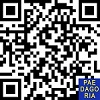STRATEGI PENGEMBANGAN SCHOOL BASED-ENTERPRISE DALAM MENINGKATKAN KUALITAS LULUSAN SEKOLAH MENENGAH KEJURUAN
Abstract
Abstrak: Sekolah Menengah Kejuruan (SMK) didorong untuk mampu mengembangkan kompetensi kewirausahaan baik bagi peserta didik maupun lembaganya. Salah satu bentuk pengembangan kompetensi kewirausahaan tersebut adalah dengan membangun unit usaha sebagai sarana belajar siswa. Tujuan penelitian ini adalah menganalisa strategi peningkatan usaha berbasis sekolah untuk meningkatkan kualitas lulusan. Penelitian ini menggunakan pendekatan kualitatif dengan metode studi kasus. Pengumpulan data yang digunakan meliputi wawancara, observasi, dan studi dokumentasi. Analisis data yang digunakan adalah Teknik triangulasi. Subjek dalam penelitian adalah Kepala SMK Cendekia Paseh Bandung, Wakasek dan Kepala Program. Hasil penelitian ini menyimpulkan bahwa efektivitas usaha berbasis sekolah sangat dipengaruhi oleh aspek (1) kepemimpinan, (2) sumber daya, dan (3) kurikulum. Kepala sekolah dituntut untuk membuat gagasan strategis tentang rencana dan program sekolah. Kurikulum yang dikembangkan harus sejalan dengan kebutuhan DUDIKA agar tercipta relevansi antara Pendidikan di SMK dengan kebutuhan DUDIKA. Sehingga untuk meningkatkan efektivitas usaha berbasis sekolah diperlukan kriteria kepemimpinan yang memiliki komitmen, kompetensi serta kreatif dalam mengelola sumber daya yang ada dan menciptakan inovasi-inovasi dalam program sekolah.
Abstract: Vocational high schools (SMK) are encouraged to be able to develop entrepreneurial competencies for both students and their institutions. One form of developing entrepreneurial competence is to build a business unit as a means of student learning. The purpose of this research is to analyze strategies for improving school-based businesses to improve the quality of graduates. This study uses a qualitative research model. The subjects in the study were the head of SMK Cendekia Paseh Bandung, the vice principal, and the head of the program. The results of this study concluded that the effectiveness of school-based enterprises is strongly influenced by aspects of (1) leadership, (2) resources, and (3) curriculum. Principals are required to make strategic decisions about school plans and programs. The developed curriculum must be in line with DUDIKA's needs in order to create relevance between education in SMK and DUDIKA's needs. So to increase the effectiveness of school-based businesses, leadership criteria are needed that are committed, competent, and creative in managing existing resources and creating innovations in school programs.
Keywords
Full Text:
PDFReferences
Agustha, Y., Prabowo, B., & Perdhana, M. S. (2018). Servant Leadership pada Organisasi Volunteering (Studi Mix Method pada Alumni Leadership Development Model AIESEC UNDIP ). Diponogoro Journal of Management, 7(1997), 1–11.
Amanchukwu, R. N., Stanley, G. J., & Ololube, N. P. (2015). A Review of Leadership Theories, Principles and Styles and Their Relevance to Educational Management. Management, 5(1), 6–14. https://doi.org/10.5923/j.mm.20150501.02
Arar, K., & Abu-Romi, A. (2016). School-based management: Arab education system in Israel. Journal of Educational Administration, 54(2), 191–208. https://doi.org/10.1108/JEA-09-2014-0118
Asdar, A. S., & Handoyo, S. (2019). Pengaruh servant leadership terhadap kemampuan pembelajaran organisasi. Fenomena, 28(1), 45–53. https://doi.org/10.30996/fn.v28i1.2455
Irmayani, H., Wardiah, D., & Kristiawan., M. (2018). The strategy of SD Pusri in improving educational quality. International Journal of Scientific and Technology Research, 7(7), 113–121.
Lee, M. H., Yun, J. H. J., Pyka, A., Won, D. K., Kodama, F., Schiuma, G., Park, H. S., Jeon, J., Park, K. B., Jung, K. H., Yan, M. R., Lee, S. Y., & Zhao, X. (2018). How to respond to the Fourth Industrial Revolution, or the second information technology revolution? Dynamic new combinations between technology, market, and society through open innovation. Journal of Open Innovation: Technology, Market, and Complexity, 4(3). https://doi.org/10.3390/joitmc4030021
Lian, B. (2019). Revolusi Industri 4.0 dan Disrupsi, Tantangan dan Ancaman bagi Perguruan Tinggi. Educatio, 2, 40–45. https://jurnal.univpgri-palembang.ac.id/index.php/Prosidingpps/article/view/2512/2323
Phan, A. C., Nguyen, H. T., Nguyen, H. A., & Matsui, Y. (2019). Effect of Total Quality Management Practices and JIT Production Practices on Flexibility Performance. Empirical Evidence from International Manufacturing Plants, 11(11), 21.
Ramlawati, R. (2018). Total quality management as the key of the company to gain the comrtitiveness, performance achievement and consumer satisfaction. International Review of Management and Marketing, 8(4), 60–69.
Sabas, J., & Mhonya, S. O. (2015). The influence of governance system on students’ performance in public secondary schools in Karatu District, Tanzania. International Journal of Science and Research, 6(14), 1595–1598. https://doi.org/10.21275/ART20162481
Sadikoglu, E., & Olcay, H. (2014a). The effects of total quality management practices on performance and the reasons of and the barriers to TQM practices in turkey. Advances in Decision Sciences, 2014. https://doi.org/10.1155/2014/537605
Sadikoglu, E., & Olcay, H. (2014b). The effects of total quality management practices on performance and the reasons of and the barriers to TQM practices in turkey. Advances in Decision Sciences, 2014. https://doi.org/10.1155/2014/537605
Salvioni, D. M., & Cassano, R. (2017). School Governance, Accountability and Performance Management. International Journal of Financial Research, 8(2), 176. https://doi.org/10.5430/ijfr.v8n2p176
Sarina, Kristiawan, M., & Wardiah, D. (2019). Module development the utilization of patchwork fabric as teaching materials crafts on the subjects of craft and entrepreneurship for high school students. International Journal of Scientific and Technology Research, 8(5), 124–130.
Wandasari, Y., Kristiawan, M., & Arafat, Y. (2019). Policy evaluation of school’s literacy movement on improving discipline of state high school students. International Journal of Scientific and Technology Research, 8(4), 190–198.
Xu, M., David, J. M., & Kim, S. H. (2018). The fourth industrial revolution: Opportunities and challenges. International Journal of Financial Research, 9(2), 90–95. https://doi.org/10.5430/ijfr.v9n2p90
DOI: https://doi.org/10.31764/paedagoria.v15i1.17671
Refbacks
- There are currently no refbacks.
Copyright (c) 2024 Annisa Lutfia, Corry Yohana

This work is licensed under a Creative Commons Attribution-ShareAlike 4.0 International License.
Paedagoria : Jurnal Kajian, Penelitian dan Pengembangan Kependidikan
Fakultas Keguruan & Ilmu Pendidikan | Universitas Muhammadiyah Mataram.
_______________________________________________
 | Paedagoria : Jurnal Kajian, Penelitian dan Pengembangan Kependidikan |
______________________________________________
CURRENT INDEXING:
. .
.
EDITORIAL OFFICE:
















